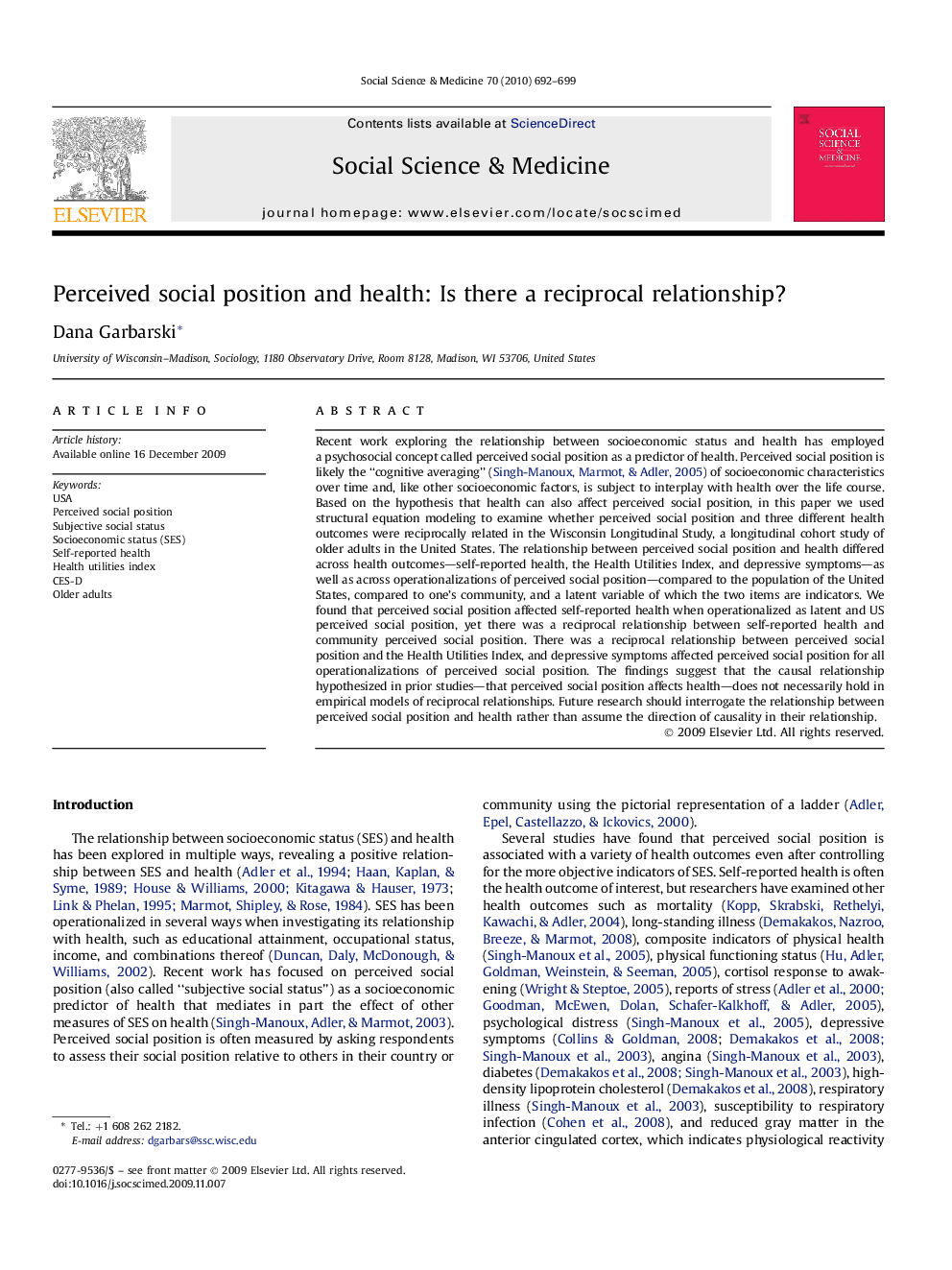| Article ID | Journal | Published Year | Pages | File Type |
|---|---|---|---|---|
| 10472049 | Social Science & Medicine | 2010 | 8 Pages |
Abstract
Recent work exploring the relationship between socioeconomic status and health has employed a psychosocial concept called perceived social position as a predictor of health. Perceived social position is likely the “cognitive averaging” (Singh-Manoux, Marmot, & Adler, 2005) of socioeconomic characteristics over time and, like other socioeconomic factors, is subject to interplay with health over the life course. Based on the hypothesis that health can also affect perceived social position, in this paper we used structural equation modeling to examine whether perceived social position and three different health outcomes were reciprocally related in the Wisconsin Longitudinal Study, a longitudinal cohort study of older adults in the United States. The relationship between perceived social position and health differed across health outcomes-self-reported health, the Health Utilities Index, and depressive symptoms-as well as across operationalizations of perceived social position-compared to the population of the United States, compared to one's community, and a latent variable of which the two items are indicators. We found that perceived social position affected self-reported health when operationalized as latent and US perceived social position, yet there was a reciprocal relationship between self-reported health and community perceived social position. There was a reciprocal relationship between perceived social position and the Health Utilities Index, and depressive symptoms affected perceived social position for all operationalizations of perceived social position. The findings suggest that the causal relationship hypothesized in prior studies-that perceived social position affects health-does not necessarily hold in empirical models of reciprocal relationships. Future research should interrogate the relationship between perceived social position and health rather than assume the direction of causality in their relationship.
Keywords
Related Topics
Health Sciences
Medicine and Dentistry
Public Health and Health Policy
Authors
Dana Garbarski,
